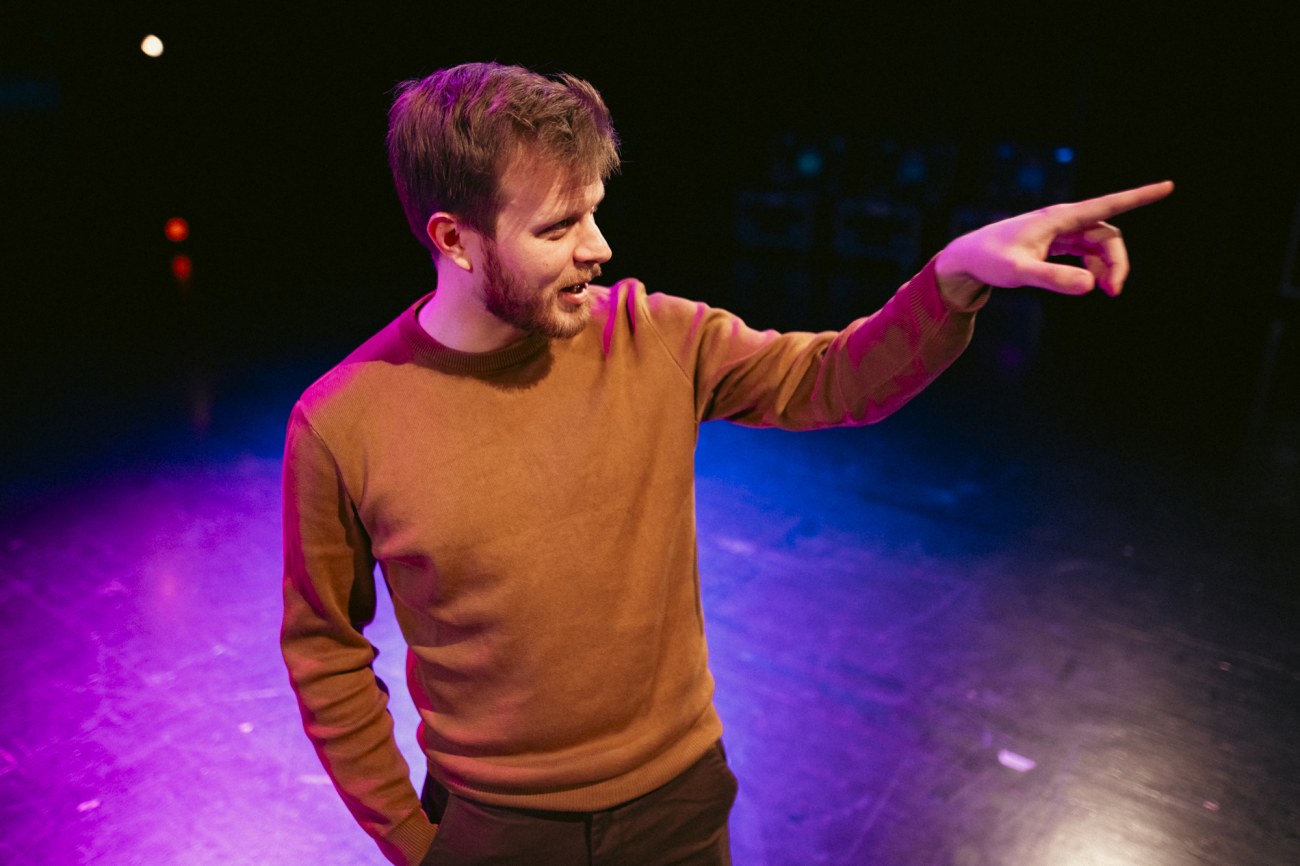Henri Pullinen investigates the moderation of political interaction in social media

According to Henri Pullinen, making sense of life today requires an understanding of the devices and software that affect it. The 33-year-old teacher, who specialises in social studies and the French language, has found his niche as a doctoral researcher in the CONVERGENCE of Humans and Machines project at Tampere University. This multidisciplinary initiative explores how emerging technologies, such as affective computing, gamification, and artificial intelligence (AI), are increasingly becoming intertwined with our daily lives.
“Phenomena related to technological development and its effects on culture, societal structures, and individual lives have been on top of my mind for years," Pullinen reflects. The CONVERGENCE project has provided him with an ideal platform to transform his long standing interest into focused research.
 Photo: Antti Yrjönen
Photo: Antti YrjönenAt the core of his work is a desire to discover new ways of using technologies, that are reshaping our world. "I got drawn in by the importance of the subject. We live in interesting times, when the uses of technologies such as AI are being invented.”
In his research, Pullinen focuses on the use of AI tools, such as chatbots, in moderating political social media discussions. He intends to develop a chatbot that enhances feelings of empathy and test its usage in an experiment in social media.
"Automatic moderation of political discourse online is problematic on many levels. By emphasizing the strengthening of empathy, the focus is on fostering a constructive environment for discussion, while still allowing space for the free formation and expression of opinions."
 Photo: Antti Yrjönen
Photo: Antti YrjönenThe work is particularly important now, as political discourse, which serves as a cornerstone of democracy and involves the discussion of problems and solutions, is poorly realized on social media platforms due to issues such as toxicity and the format of social media platforms.
For Pullinen, technological advancements have been a constant presence. “I believe that an ever-growing part of our lives will be spent in digital worlds. Since my teenage years, I've spent a lot of time with games and in chats.” He even celebrated his 30th birthday via Discord during the COVID-19 lockdown. “And it was fun!” he remarks.
The multidisciplinary nature of the CONVERGENCE project excites Pullinen. “It's a great idea to bring together people from all kinds of backgrounds to work on these subjects. I hope to learn as much as possible from the technical side of things. Luckily there are skilled researchers to ask questions from!”
As a native of Tampere, Pullinen offers advice to his incoming colleagues: “Go to public saunas in the winter. It's the most Finnish thing you can do. And try ice swimming; you'll feel invincible afterwards!”
This series of articles introduces the doctoral researchers of the CONVERGENCE project at Tampere University, an initiative blending natural sciences and engineering with social sciences and humanities. CONVERGENCE aims to bridge the gap between technology and humanity, exploring areas like affective computing, augmented reality, and AI. You can read more on the project website.
Funded by the Jane and Aatos Erkko Foundation.
Text and photos by Antti Yrjönen
Stage and lights by Carlos Portilla Lopez
Venue Teatterimonttu, Tampere University, City Centre Campus
 Photo: Antti Yrjönen
Photo: Antti YrjönenEach CONVERGENCE doctoral researcher has two main supervisors. Henri Pullinen's main supervisors are Pekka Isotalus ja Tapio Elomaa and additional supervisor Salla-Maaria Laaksonen
















